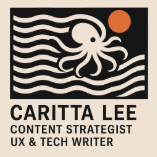Case Study: Capital Group Support Hub Creation
How step-by-step guides and video tutorials reduced customer support calls from 60 to 10 minutes, saving 500 staff hours monthly
Summary
Built an online support center with step-by-step guides and video tutorials for retirement planning software that reduced average customer call time from 60 to 10 minutes, saving 500 staff hours monthly
My role: Senior Content Strategist - Led content strategy across audits, interviews, IA development, nomenclature, copy decks, wireframes, and annotations
Timeline: 5-6 months
Tools: Google docs, InVision, Omnigraffle
Core team: Product Manager, Senior UX Designer/Information Architect, Visual Designer (a Senior Engineer and Video Editor joined later)
Challenge
The Senior UX Designer and myself conducted interviews with product management and Retirement Specialists, and listened to 11 1-hour onboarding calls to understand customer pain points. I conducted landscape audits of multi-step transactions and online experiences from other financial or healthcare organizations. We also researched user behavior patterns (Nielsen findings: adults hold attention for 20 minutes, users settle for "good enough") to inform our content strategy approach.
Insight 1
Retirement Specialist turnover required that the onboarding process start over
Insight 2
Most users don’t enroll their employees until later at night - when Retirement Specialists are unavailable
Content Design Process
Discovery & Collaboration
Work sessions with Security Strategists and Practice Advisors informed my content redesign ideas. They walked me through the steps where they saw their customers struggling. After these sessions, I went through the wizard to create each goal and SLA a few times to familiarize myself with the existing flow.
During this exercise, I realized that asking users to pick a goal type at the start added unnecessary complexity, since they needed to know what they wanted to make in the first place.
Wireframing & Iteration
I started wireframing in Miro to wireframe and share some new content design ideas with the UX designer, product manager, advisors, and strategists. I made several rounds of iterations after getting some feedback:
Attempt 1:
Added a new goal to Step 1 and rewrote the querying copy in question format
Attempt 3:
Rewrote copy based on the type of data the user chose
Progressive Disclosure
Break tasks into smaller chunks to avoid overwhelming users
Attempt 2:
Asked Engineering if we could display content based on user selections—they said yes
Attempt 4:
Combined Steps 2 and 3, since content was relevant to the selected content type
After getting approval from other disciplines, I shared my final recommendation with the PM. We didn't have time to test it, but given the feature's dismal performance, anything was an improvement.
Content Design Strategy
Based on research insights, I proposed redesigning content around three key principles:
Solution: Step-by-Step Content Redesign
Step 1: Goal Selection
Changes made:
Added preset templates of popular use cases like Remediate All Critical Vulnerabilities and Ensure Assets Have Ownership Tag for easy customization
Included a New Goal option that didn't require users to know the goal type upfront
Removed the barrier of having to understand technical goal types before starting
"Capital Group's retirement savings onboarding required small business owners to complete a complex 1-hour phone walkthrough with Retirement Specialists. This created significant pain points for both users and the business:
Tech-savvy gap: Small business owners lacked technical expertise to navigate the software independently
Lengthy support dependency: Each onboarding required 1-hour phone calls with Retirement Specialists
Knowledge retention issues: Business owners often couldn't complete enrollment immediately after the call and would forget the steps they learned
Repeated support cycles: Forgotten processes required additional lengthy support calls to re-explain the same enrollment steps
Research & Key Insights
Insight 3
Small business owners lack technical skills - logging into retirement planning coult take up to 20 minutes
Match Mental Models
Format tasks in questions to help user think about tasks at hand
Contextual Guidance
Provide help when and where users need it
Step 2: Configuration
Changes made:
Allowed users to select either Remediate Vulnerabilities or Configure Assets, which refreshes the wizard to display the related vulnerabilities or assets flow
Decoupled query building into separate steps
Rewrote content as questions to help users think about the task at hand
Added contextual explanations ("You'll load or build a query to narrow down your assets") and links to help documentation
Step 3: Review
Changes made:
Told users the type of goal they created and defined it
Required goal naming to help with future goal management
Results
Quantitative Impact
95%
completion rate (up from 65%)
Qualitative Impact
30%
reduction in support tickets
“THANK YOU, THANK YOU, THANK YOU! This is so much easier to use than the first version.”
“This is a huge improvement. My customers won’t stop raving about it!”
75%
faster creation time
800+
goals created in Week 1







